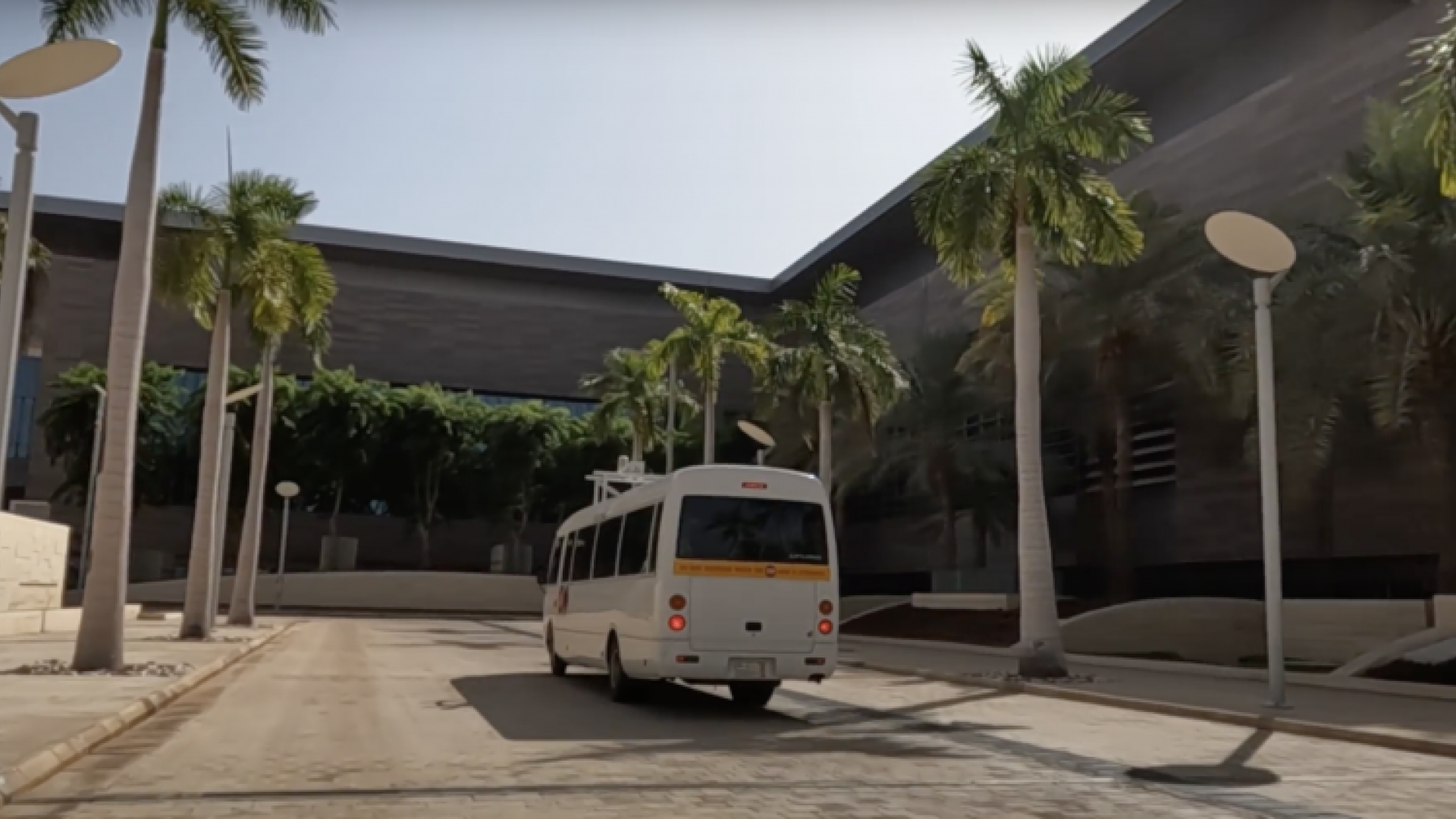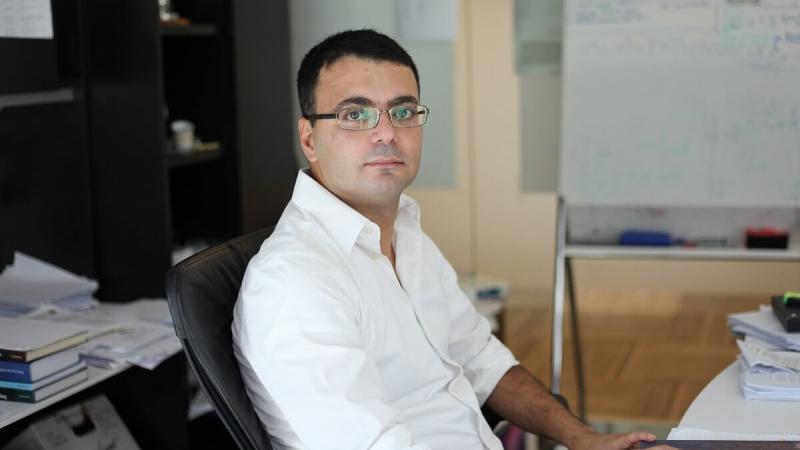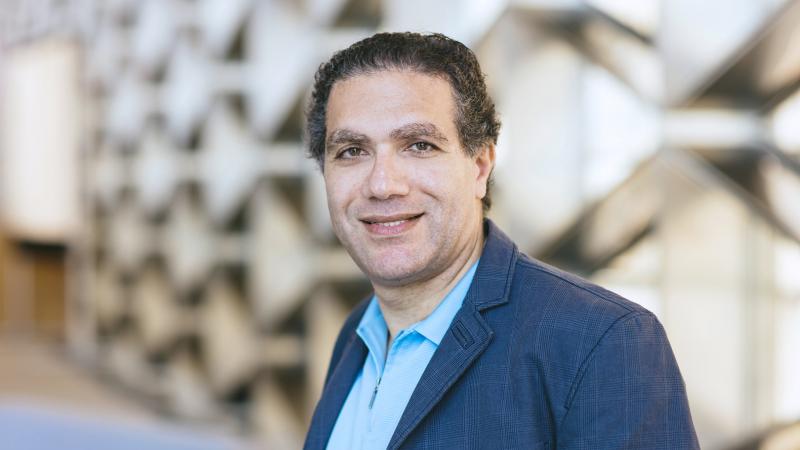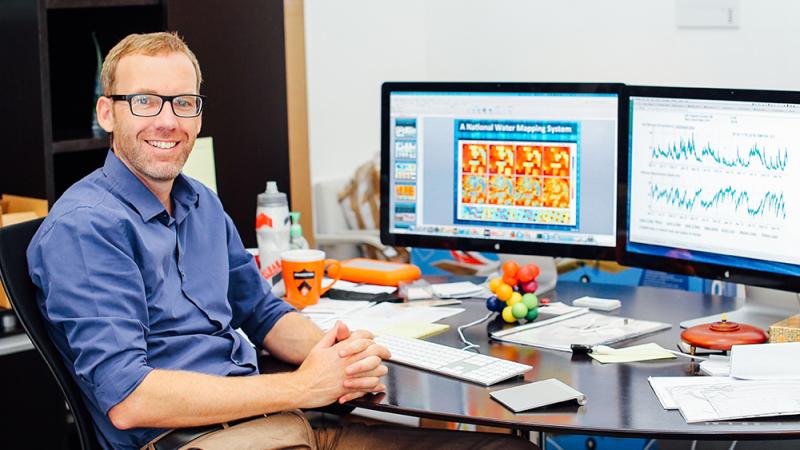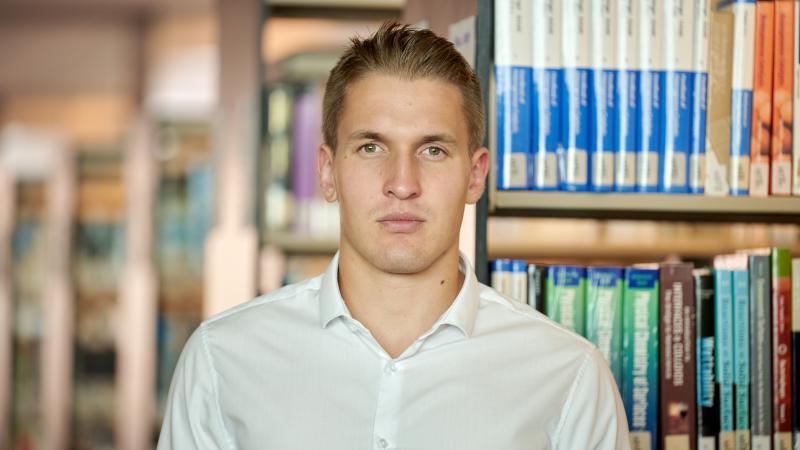In the heart of the Arabian desert, where ambitious visions of futuristic smart cities like NEOM are taking shape, a significant challenge arises: urban air pollution. As Saudi cities bristle with innovation, technological advancements and unparalleled connectivity, ensuring clean air is crucial to their continued progression.
Urban air pollution is not a new adversary in Saudi Arabia, but it presents an opportunity for growth and improvement. As the Kingdom's cities expand and become more populated, there is an increasing focus on addressing the environmental impact of air pollution. Accurately monitoring these pollutants is vital in effectively tackling this issue.
To address this concern, a KAUST research team, led by Professor Khaled Nabil Salama, has adopted an inventive hybrid strategy. The team has merged the reliability of stationary quality monitoring systems with the adaptability of mobile units, resulting in a robust network. Their system exemplifies a harmonious integration of sustainability and innovation.
Traditionally, air quality monitoring relied on stationary systems strategically positioned around cities; while effective to a degree, these systems had limitations: they could miss large urban swathes, resulting in data voids. Moreover, they could not capture dynamic changes in air quality occurring throughout the day or during various events.
The KAUST team's innovation comes in the form of monitors that attach to city buses, transforming them into roving sensors that offer a holistic view of urban air quality. “We are captivated by technological marvels in our cities, but what’s their worth if we compromise on air quality?” Salama emphasized. “A real-time monitoring system empowers us to understand trends, make informed decisions, and respond promptly when needed.”
KAUST Ph.D. student and chief engineer behind this innovation, Yurii Tsyban, added: “Conventional systems have their limitations. With the burgeoning smart city movement, we need a system that leaves no stone unturned in monitoring our urban environments.”
The technology, with the sensors linked to the cloud, real-time data transmission and accurate model predictions, provides a continuously refreshed perspective on air quality. Understanding the need for clear data interpretation, the team also created a user-centric dashboard. This interface enables any user to grasp air quality nuances in their vicinity.
“Merely gathering data isn’t enough,” Professor Ibrahim Hoteit, co-principal investigator of the project, commented. “The magic unfolds when this data undergoes processing and models are developed to predict and visualize various environmental phenomena.”
Reshaping urban life in the Kingdom
The quest for smarter cities extends beyond advanced gadgets and architectural marvels. It fundamentally revolves around creating sustainable, healthy habitats. With visionary projects like NEOM charting the Kingdom and the world’s future, innovations from institutions like KAUST become indispensable, profound pillars. Integrative systems, such as KAUST’s, can enhance technology while prioritizing residents' health; it goes beyond immediate utility and marks a significant stride in global sustainability goals.
Embedding this real-time monitoring within these urban environments offers a foundation for data-informed decisions. These decisions could range from rerouting traffic during pollution peaks to optimizing industrial operations to minimize emissions.
“KAUST, as a ‘living laboratory,’ is the perfect place to test smart city concepts with speed in a real-life controlled environment before they are launched globally,” Salama noted. “Our efforts underscore the essence of innovation. Beyond the allure of technology, it’s about elevating the human experience and setting global benchmarks for urban living.
“The University has consistently pushed the envelope in scientific exploration and advancement. The air quality monitoring system aligns seamlessly with the KAUST’s mission to be a global knowledge and innovation powerhouse while prioritizing the well-being of its community.”
Professor Mathew McCabe, Director of the KAUST Climate Change and Livability Initiative, who sponsored the project, highlighted the University-wide effort: “Our project transcends academic boundaries. By fostering improved air quality and real-time data sharing, we’re directly aligning with the United Nations' sustainability objectives.”
A cleaner, healthier future is not merely an aspirational vision—it is a tangible goal within humanity’s grasp, achievable through collective endeavor and innovation. With the pace of urbanization on the rise, it’s imperative for institutions like KAUST to continue to pave the way.
“Our recent initiatives highlight the synergy of technology, collaboration, and foresight in sculpting cities that are not just intelligent but also sustainable and health-centric,” Salama concluded.
